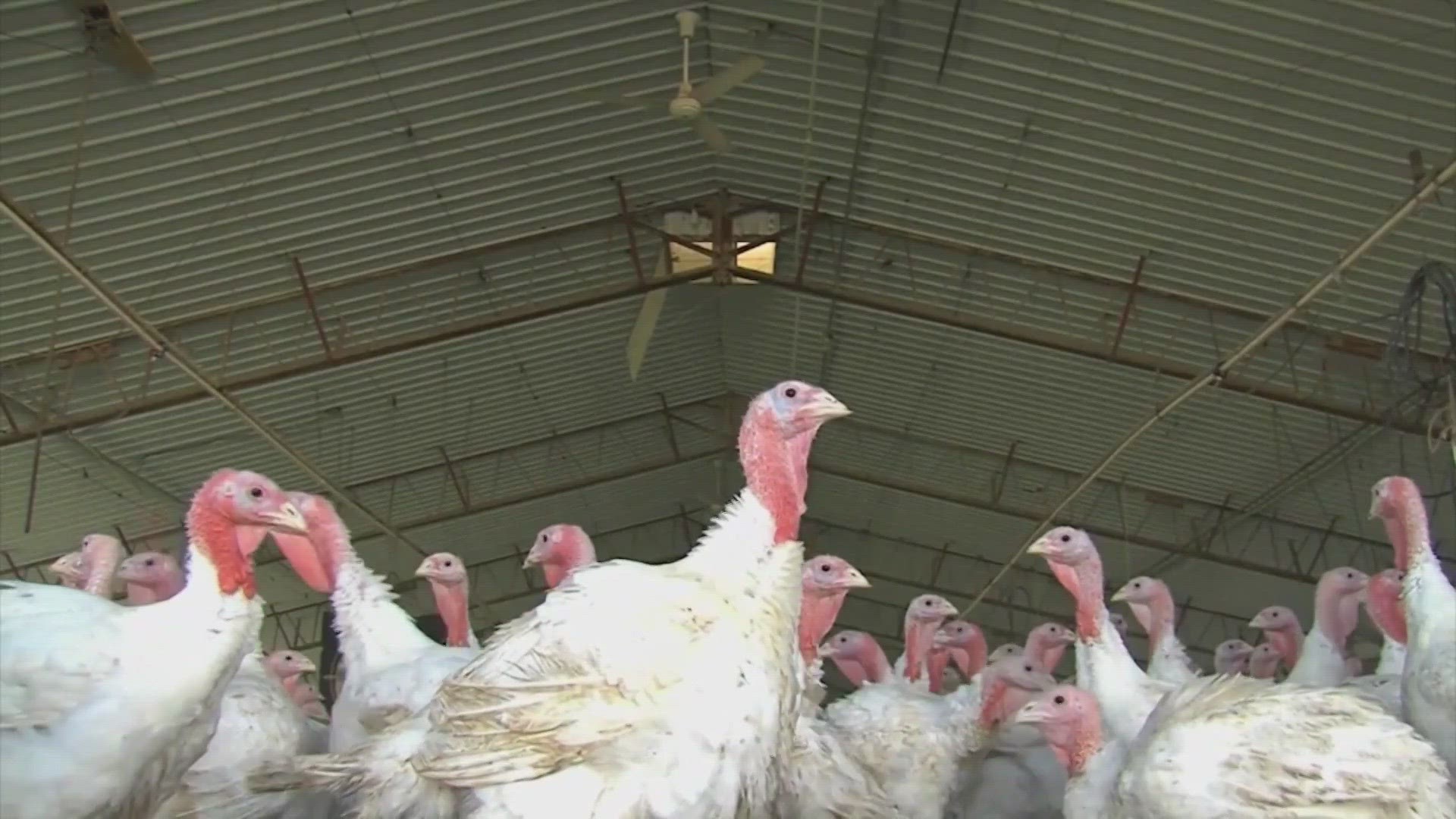SAN ANTONIO — H5N1 or what is commonly known as bird flu is spreading across the globe and has caused a pandemic among animals and driven egg prices drastically higher. But is it a threat to humans?
The World Health Organization says the disease is worrisome, but for now, the main threat seems to be among certain animal species. But people still need to be aware as all viruses have the ability to mutate. Dr. Jason Bowling, an infectious disease specialist with University Health and Professor of Infectious Diseases with UT Health San Antonio told us, "Fortunately, the overall risk for people right now at this point is considered to be low. There are a few people that have contracted bird flu, but it doesn't seem to spread well from person to person."
Since 2003 there have only been 873 human cases of H5N1. The problem is the fatality rate. Among those cases 53 percent, about one out of two were fatal. That is 50 times the mortality rate of COVID and 250 to 500 more times deadly than seasonal flu. Dr. Bowling added, "It makes it a little bit tricky to interpret those numbers with the low numbers that we have right now. But certainly raises concern, right, When you see mortality rates that high."
Avian flu symptoms are a lot like the flu and include a high fever, cough, sore throat, muscle aches, and pneumonia. Even though this is mainly a threat to the wild bird population right now, Dr. Bowling says it still needs to be monitored. He said, "I think it's important for us to do surveillance of infections, including in animal populations, because if those don't get well-controlled, there's always a risk that something could mutate and become infectious in people."
And since this flu has been around for decades, it won't catch us by surprise like COVID did. Dr. Bowling told us, "I think this is a good sign in a way that we're aware of it, We're tracking it. We're looking at measures proactively as opposed to reactively like we had to with SARS-CoV-2."
Dr. Bowling also told us that a vaccine is being looked into for birds to try to get a better handle on the disease, and also for humans if it becomes a much more serious threat worldwide.

